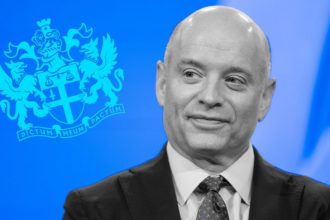Almost as long as the weight-loss shot Wegovy’s been on the market, dozens of websites, telehealth clinics, and med-spas have been hawking cheaper knock-off versions. Now, these custom-made “compounded” shots are starting to go mainstream.
The $7 billion healthcare startup Ro, which has been prescribing brand-name weight-loss shots since January 2023, now offers compounded semaglutide to patients enrolled in its weight-management program.
Ro told Business Insider that it started prescribing the compounded drug about two months ago to ensure that its patients can stay on medication when brand-name drugs are hard to find. Different doses of Ozempic, Wegovy, and Mounjaro have been in short supply over the last couple of years as drugmakers have struggled with overwhelming demand. And Ro has struggled to get the medications to some patients quickly, Business Insider previously reported.
Ro said it sees compounded semaglutide as a backup, to be prescribed only after first pursuing access to the brand-name drugs.
Nonetheless, Ro is the first prominent healthcare company to effectively endorse compounded semaglutide by prescribing it. Even though Ro says it rigorously tests the drug to make sure it’s safe, its stamp of approval could lull people looking for affordable treatment into a false sense of security that all compounded weight-loss shots are safe.
The stakes are high.
A poor-quality compounded drug might simply be a dud and a waste of money. Or it could be contaminated and make you sick. Without much oversight, the impossible task of determining if a compounded drug and its maker are legitimate falls on patients.
Aside from Ro, most online sellers of compounded semaglutide aren’t recognizable healthcare brands. A quick Google search turns up plenty of sketchy sites you’ve probably never heard of that claim to sell compounded versions of semaglutide, the active ingredient in Novo Nordisk’s Wegovy and its hugely popular diabetes drug Ozempic. Wegovy and Ozempic are the same drug, but marketed to treat different conditions. Some websites also sell imitation tirzepatide, the main ingredient in Eli Lilly’s weight-loss shot Zepbound.
Compounded drugs aren’t tested or approved by the US Food and Drug Administration, so there’s no guarantee they’re safe or that they work. The FDA has warned patients about using compounded semaglutide, as have a trio of obesity-medicine groups representing doctors and patients. And because drugmakers have said they don’t sell the active ingredients in their weight-loss shots to compounding pharmacies, it’s unclear if the pharmacies are sourcing them from regulated suppliers.
Supply shortages opened the door for imitation drugs
When there’s a drug shortage, the FDA says special pharmacies can create their own compounded version of that drug, even if it’s protected by a patent. That’s what happened in the case of new weight-loss drugs, known as GLP-1 agonists, that have exploded in popularity in the past couple of years.
So many prescriptions are being written for Novo Nordisk’s Ozempic and Wegovy and Eli Lilly’s Mounjaro that drugmakers have had problems making enough to go around. Currently, Wegovy and Mounjaro are listed on the FDA’s drug shortage list, opening the door for compounding pharmacies to fill the void.
The pharmacies wasted no time capitalizing on the moment, and dozens of telehealth sites and online clinics popped up touting compounded semaglutide or tirzepatide at a fraction of the price of the brand-name medications, which can cost around $1,000 a month without insurance.
It’s all perfectly legal as long as compounding pharmacies follow certain rules, such as the requirement to source ingredients from FDA-registered manufacturers.
But while compounding pharmacies are subject to FDA and state regulations, states are the main regulators, and their oversight is patchy.
The dearth of oversight has led to big problems. In perhaps the most well-known compounding disaster, contaminated injectable steroids made in unsafe conditions by a compounding pharmacy in Massachusetts killed at least 60 people and sickened more than 700 in 2012. Since then, compounding has grown more common, and regulators have stepped up scrutiny.
Still, in 2018, former FDA commissioner Scott Gottlieb testified before Congress that the agency had found “problematic conditions” during most of its 500 inspections of compounding pharmacies from late 2013 to 2017.
Is compounded semaglutide safe?
It’s hard to know if any given vial of compounded semaglutide is safe. The FDA warned that patients shouldn’t use a compounded drug if an approved one is available, and it cautioned that some compounding pharmacies have been selling semaglutide salts instead of the base form that’s been tested.
An FDA spokesperson told Business Insider that the agency has received more than 165 reports of adverse events related to compounded semaglutide from August 2021 through January 23, 2024. He added that many adverse events appear similar to the side effects common to Ozempic and Wegovy.
That’s not a ton of complaints, but compounding pharmacies generally don’t report adverse events to the FDA.
Meanwhile, authorities in the US and other countries warned that they’ve found counterfeit Ozempic masquerading as the real thing. In Austria, fake Ozempic sent some patients to the hospital with life-threatening conditions. The FDA in December said it seized thousands of units of fake Ozempic that had somehow found its way into the legitimate US supply chain.
Drugmakers have also sounded the alarm over compounded versions of their drugs. Novo Nordisk, which has sued a dozen compounding pharmacies for selling knockoffs of its Wegovy and Ozempic shots, said its analysis of compounded semaglutide found “unknown impurities as high as 33% and lower levels of strength than labeled.” Eli Lilly has also taken legal action against compounding pharmacies.
Eric Kastango, an expert on sterile compounding who consults with pharmacies, said it’s expensive for pharmacies to create sterile drugs correctly, and some of them cut corners in ways that could put patients at risk. And while state boards of pharmacies have strengthened oversight of compounders, they generally look for minimum compliance with standards, which sometimes aren’t strong enough, he said.
“There’s going to be a higher risk associated with compounded drugs regardless because they’re made in an environment that is different” than drugmakers making FDA-approved products, Kastango said.
Even so, some pharmacists aren’t worried about patients using compounded weight-loss drugs.
“As long as a compounding pharmacy is licensed in the state of which they’re practicing or the state that they’re shipping into and that compounding pharmacy is acting under the professional obligations that they are required to do so according to FDA and USP, I have no concerns with the drugs that are being compounded,” said Al Carter, the executive director of the National Association of Boards of Pharmacy.
Other major telehealth companies said prescribing compounded GLP-1s isn’t worth the risks
Still, some other big weight-loss companies, including Weight Watchers, Noom, and Found, are steering clear of compounded GLP-1s.
Sarah Jones Simmer, the CEO of Found, said there are plenty of other FDA-approved drugs the company can prescribe when GLP-1 injections aren’t available. It doesn’t need to fall back on compounded versions that might not be as safe or effective as brand-name drugs.
Dr. Spencer Nadolsky, the medical director of WeightWatchers, said the dosage and ingredients in compounded medications could vary from pharmacy to pharmacy, and some may have potential impurities that could pose serious health risks.
Another issue is that compounded semaglutide tends to come in a vial instead of a pre-filled pen, which means patients must measure out their dose using a syringe. A patient might make a mistake that could harm them, he said.
Dr. Tim Church, the chief medical officer at Wondr Health, a weight-management company that works with employers, said he gets why patients would want to go the compounding route, given how many need medication and can’t afford it. But Wondr would never prescribe compounded drugs as part of its weight-loss program — it would put patients and the business at risk, he said.
“It’s playing with fire,” he said. “It’s one of those things where it’s all good until it isn’t.”
How Ro says it makes sure its compounded drugs are safe
Ro is charging ahead, however. The company says patients can trust that it’s done the legwork to ensure its compounded semaglutide is safe and works.
It said the pharmacies it works with essentially make copies of the FDA-approved drug and don’t add additional inactive ingredients. Both the base semaglutide and the finished product go through extensive quality checks by third-party labs that Ro hired.
Ro declined to say which compounding pharmacies it works with but said they are registered with state regulators and get their semaglutide base from FDA-registered manufacturers.
Each batch of compounded semaglutide the pharmacies create can be traced back to the materials used and the pharmacist who mixed it up. Ro said all of this legwork is why its compounded semaglutide costs $450 — far more expensive than the prices advertised by other sites prescribing the drug.
Ro also said it’s monitoring patients for side effects and other problems. A minority of its patients are using compounded semaglutide. So far, Ro said it hasn’t seen a significant difference in the side effects reported by those patients compared with those on the brand-name drugs.
Read the full article here





